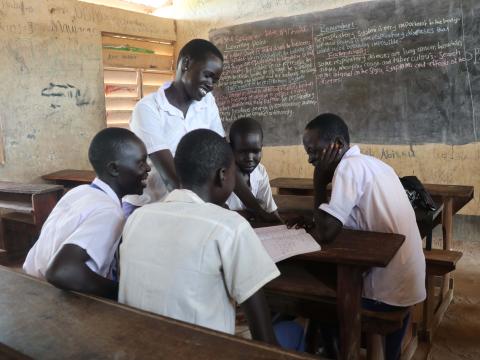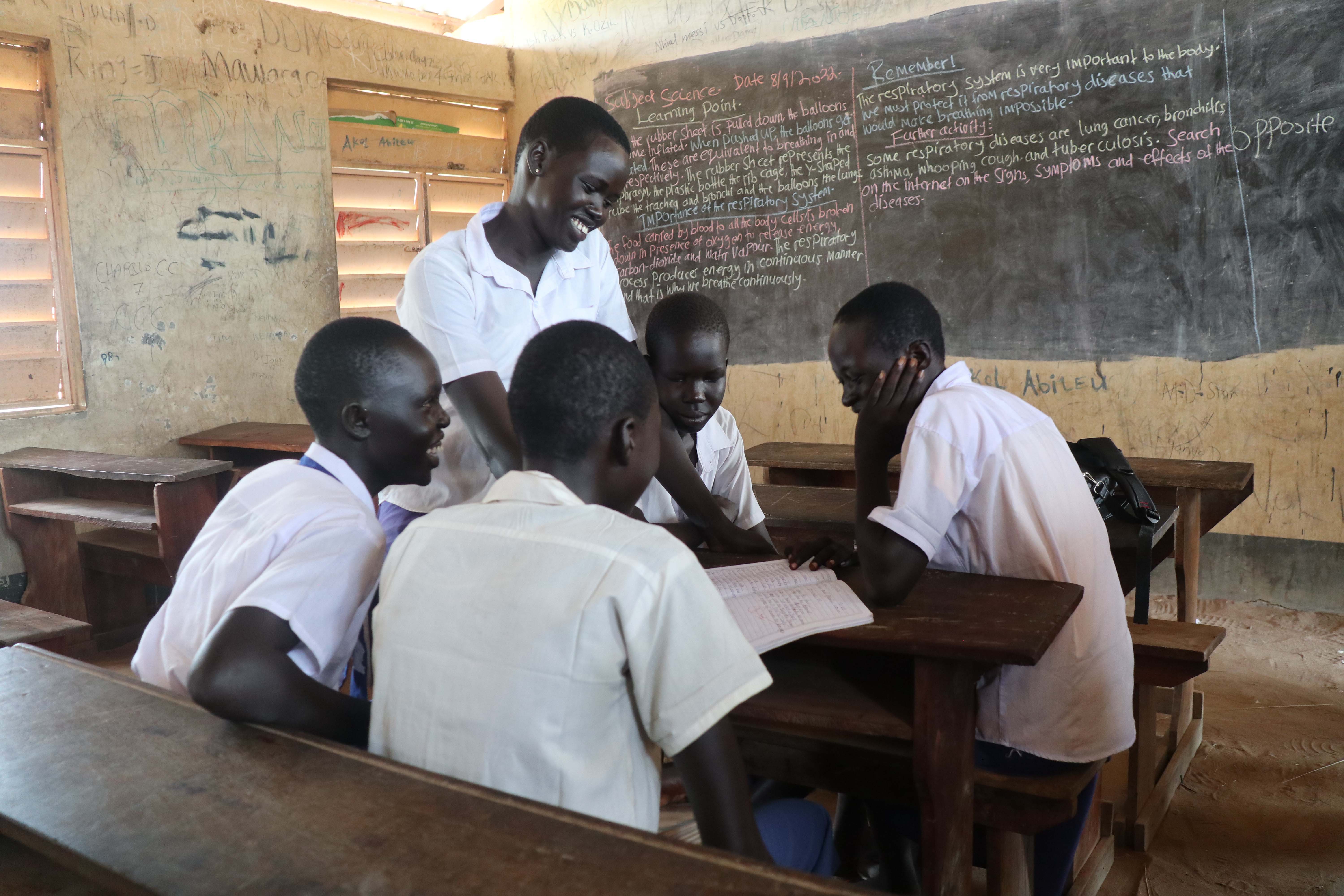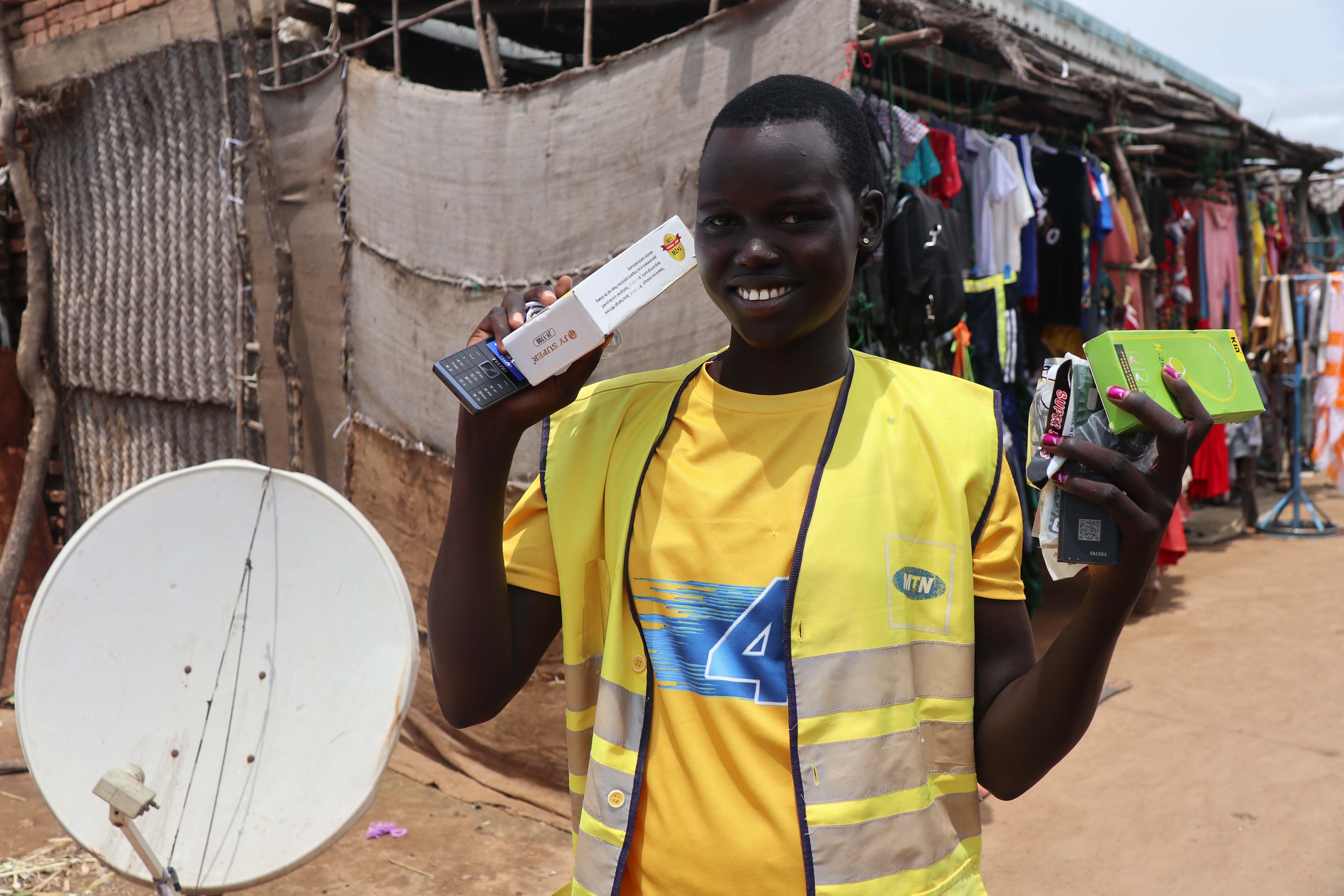Nyibol’s story: Saying 'No' to child marriage in South Sudan

Educating girls empowers them to say ‘no’ to child marriage. Such is the story of Nyibol from South Sudan, who, at 17, refused to be forced to marry twice, and won. Child marriage disproportionately impacts young girls and women. Girls like Nyibol are taking a stand to end this.
Nyibol first refused to be forced to marriage when she was 14.
“The man came with 35 cattle to make his intention of marriage known. My father accepted the man’s proposal and agreed to marry me off,” she says. Her father decided to accept the proposal despite her mother’s disapproval to protect their family’s honour and reputation and save them from starvation.
Fueled by poverty and deeply rooted cultural norms linked to gender, child marriage continues to be one of the biggest threats to children and women. This is particularly true in South Sudan where incessant conflict, flooding, and hunger, sustain the social practice of selling off girls to marriage as a means of survival.
It is customary in South Sudan that women and girls have little say about marriage. Often, marriages are arranged without their consent. While the legal age of marriage is 18, according to the UN children’s agency, UNICEF, over 50% of South Sudanese girls are wed before their 18th birthday.
Despite being scared as the date for the marriage was already set and knowing that the marriage was already a done deal, Nyibol remembered the child rights awareness sessions taught at her school by the headteacher who was also the chair of their community's child protection committee (CPC). She decided to report her case to the CPC. It was a race against time and tradition. But she knew it was a race for her future.
"It was game over for me, but I still tried my luck. To my surprise, with no delay, the CPC chair and a few committee members visited my family. The debate went on for two days and the CPC was able to convince my father to back out from the arrangement," Nyibol narrates.
"My father did not only listen to the CPC, but he also learned to respect my rights as a child. That saved me the second time when I was supposed to be married again," she adds, "Unlike before, my father considered my opinion by asking if I was interested, and when I said no, he told the man he cannot force me because I have a right and a say too in issues concerning my life." Nyibol received the second marriage proposal three years after her father declined the first.
Now at 17, Nyibol asserts, “it is essential that parents know children's rights and respect them. The narrative of child marriage has to change.” Child marriage is not – should never be – a means of survival.

Nyibol wants to be a point of reference for a positive change in her family and the community. "I am grateful that World Vision formed the CPC in the community. If not for them, I would have lost my childhood dreams."
The CPC proved to play an important role in increasing the awareness of the community members about children’s rights. Currently, World Vision South Sudan, through the support of World Vision Korea, was able to set up CPC structures in nine villages of Gogrial East and West of Warrap State. CPC volunteers help identify, prevent, refer, and report child abuse and gender-based violence (GBV) cases. CPC groups are comprised of community leaders, parents and teachers associations, school management committees, youth, and women. CPC volunteers are trained on child protection and prevention of GBV. They are also provided with bicycles, gumboots, and raincoats to help them do their tasks during the rainy season. They also conduct quarterly meetings to continue strengthening their capacities.
Today, Nyibol's father moved her from the village to Gogrial West to a better school after COVID-19. More than ever, he wants her to achieve her dreams.

James Ring Ring, World Vision South Sudan's protection manager, shares, "We have seen over the years the tangible contributions the project is making to improve the lives of vulnerable children. The establishment of the CPC within the community has created a sense of trust, thus changing people's mindsets. We, therefore, are very grateful to the people of Korea for continuing to support children such as Nyibol."
Story and photos by Scovia Faida Charles Duku, Communications Coordinator